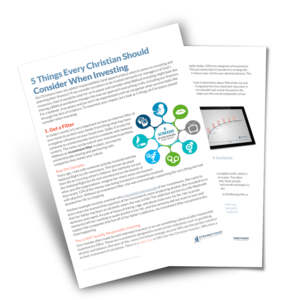Unfortunately not too many of us learn our financial lessons in a classroom or at home. We have to learn them the hard way – by making bad decisions and missing opportunities. Today, we’re going to discus some of the money lessons people often learn on their own by making bad moves. Hopefully you have not already made some of these mistakes and you can act with wisdom by learning from the mistakes of others rather than waiting until you make the mistake yourself to learn it.
10 Dumb Money Moves and How to Avoid Them

1. Not Having A Goal
Whether sitting in your car or standing at the airport, you’d never start a trip without a destination in mind. The same logic applies to money. You should decide exactly what it is you’d like to accomplish, and then remind yourself of that goal early and often. Are you trying to buy a house? Become self-employed? Save for your kid’s college education? Retire in your 50s? Whatever it is, write it down, picture it and share it with anyone else who you’re counting on to help you accomplish it. Your goal isn’t money – money is just paper. Create goals – both short-term and long-term – then decide how much money you’ll need to reach them.

2. Not Having A Spending Plan
I’ve learned that “spending plan” is now the politically correct term for a “budget” nowadays. Apparently people don’t like the word “budget” anymore so now we are using a “spending plan”. Regardless, it’s the same thing!
If you have a job of any kind, you can bet that your employer tracks every dime they make and every dime they spend. Granted, they have an incentive to do so – both income and expenses affect their income taxes – but it’s only logical to want to know where your money is coming from and where it’s going.

Tracking and categorizing your expenses with a budget, or spending plan, is the single greatest tool you have to accomplish your money-related goals. A plan that includes what you intend to spend on things like entertainment, food, housing, etc. vs. what you actually spend allows you to fine-tune your finances and find places to save. Not doing this is like driving with your eyes half-closed: You might reach your destination, but you’re certainly going to take more time getting there.
3. Attempting to Derive Self Esteem From Possessions
Although we all know that money doesn’t buy happiness, very few of us act that way. Instead, we seem to go out of our way to appear successful by driving the right car, living in the right house, and wearing the right clothes. Nothing wrong with nice things – if you can afford them.
Attempting to derive self-esteem from possessions is dumb on two counts. First, it’s expensive. More important? It doesn’t work.
4. Doing What Everyone Else Is Doing
One of the world’s wealthiest men, Warren Buffett, said, “Be fearful when others are greedy; be greedy when others are fearful.”
During the recession-induced stock market drop that began in the summer of 2008 and bottomed in March of 2009, the Dow Jones Industrial Average plunged all the way from 10,000 to 6,600. It was at that time that the “smart” investors out there began to buy up stocks. Not because somebody on TV was telling them too, most of the “experts” were as fearful as everybody else. They bought them because they had probably lived through other market downturns and missed the opportunity then and weren’t going to do it again.
Likewise, when the housing bubble was at its zenith, many people were buying as many houses as they could possibly borrow for, even though it should have been apparent that prices were over-inflated. Now they’re broke, and the smart people are shopping for real estate. Again, not necessarily because they are smarter than everyone else….well maybe they are….but they have probably seen this happen before and they learned from it.
It’s common knowledge that the economy runs in cycles of boom and bust, yet when times are good, everyone seems to believe that trees grow to the sky. When they’re tough, the same people stand like a deer in the headlights.
If you’re convinced the economy is going to zero, buy guns and canned goods. But if you can reasonably expect a recovery some day, invest, even if that day is a long way off, and even if it’s possible things could get worse before they get better.
5. Starting to Save Late and Large rather than Soon and Small

If you’re 25 and you save just 5 bucks every day, $150 month, and earn 10%, by the time you’re 55, you’ll have about $340,000.
If you wait till you’re 45 to start accumulating that same $340,000, you’ll have to save $1,700 every month for those 10 years you have left to 55.
True, you can’t earn 10% without taking on some risk. But over time, and by taking calculated risk, you can.
6. Paying Interest to Buy Things That Drop In Value

There are only two situations where paying interest makes sense, at least mathematically. The first is when the purchase goes up in value at a rate greater than the rate of interest you’re paying to finance it. For example: You borrow money at 5% to finance real estate that you think may return 8% on your overall investment. Other examples might include a business loan or a student loan – in other words, something that’s going to return more (at least potentially) than it costs in interest payments.
The other situation where paying interest makes sense is when you can earn more on your cash than you’re paying in interest. For example: After taxes, I’m only paying about 3.5% to finance my house. Since I think I can make more than 3.5% after-tax in the stock market, I’ll forgo paying off the mortgage, even if I had the extra cash.
7. Turning Down Free Money
If your employer is offering matching money when you participate in your company’s 401(k) or other retirement plan, and you’re not participating to the extent necessary to get the full match, you’re literally refusing free money, not to mention ignoring an opportunity to get a tax deduction and grow your retirement savings tax-deferred.
There are only two kinds of people who turn down free money: people who really, truly can’t afford to put up the money to get the match, and people who aren’t thinking it through.

8. Buying A New Car

Everyone knows that cars drop 15-20% before you get them home from the showroom. What makes it so odd is that so many people continue to buy one.
Unfortunately, or fortunately, depending on how you look at it, this “dumb money move” breaks down in today’s economic climate. As most of you are aware, the supply of good used cars is low right now, which has drove their prices to nearly the cost of new ones. New car supplies are low as well, which means they don’t depreciate right off the lot like they always have in year’s past. This is a more complex decision than previously.
Cars are for transportation and are depreciating assets: the less you spend on one the better, especially if you’re borrowing money to do it.
9. Buying More House Than You Can Afford

Most advice out there will tell you to not spend over 25% of your gross income on a mortgage. While spending the maximum possible amount you can afford will make real estate agents happy, will it make you happy? When you buy more square feet than you’re going to actually live in, you’re required to insure them, furnish them, clean them, heat them, and cool them. All of that costs money, time and stress.
Buying a big house makes sense if you’re trying to make a leveraged bet on the future of housing prices – or if you’re trying to impress your friends. If you’re not doing either, buy what you need and put the money you save into more productive things, like meeting your financial goals.
10. Not Protecting Your Good Credit

Credit is like lots of things in life: simple to screw up, a bear to fix. And even though you may think it doesn’t matter, some day it might, and probably will. If you’ve already messed up your credit, take the time and steps necessary to fix it and then keep in good shape.

Avoid these mistakes and you’ll be on your way to a good financial future. We want to see you succeed! It’s also important to remember that investing in the stock market is subject to market risk and past performance is not a guarantee of future performance. The risk of loss can be substantial. Please ensure that you understand fully the risks involved and to invest money according to your risk bearing capacity. We are here to help you understand the risks.
Do you need help with some of your “money moves”?
5 Things Every CHRISTIAN Should Consider When Investing
